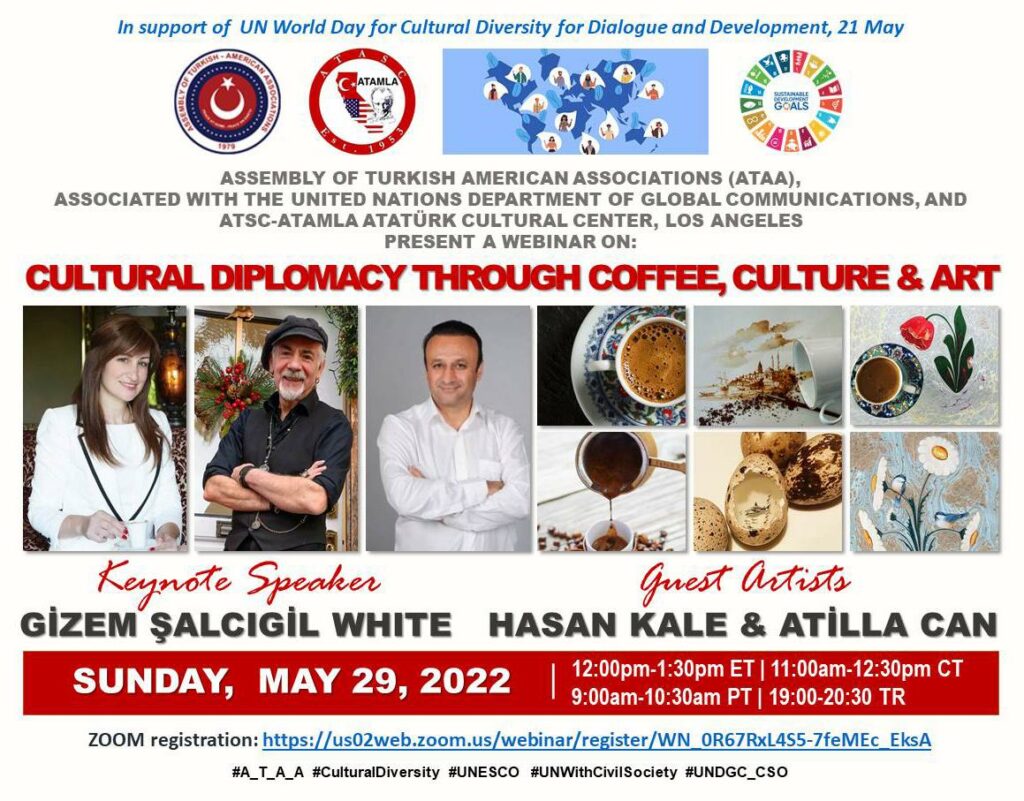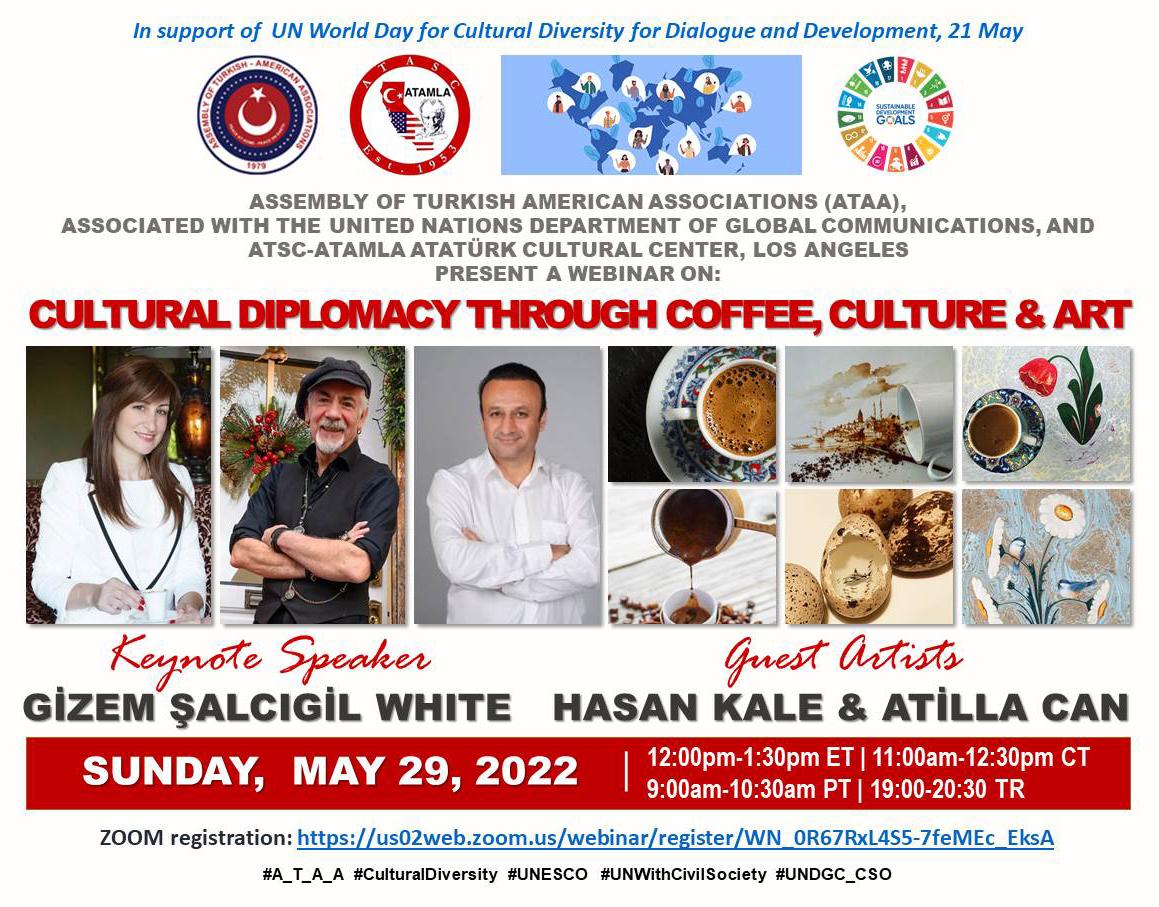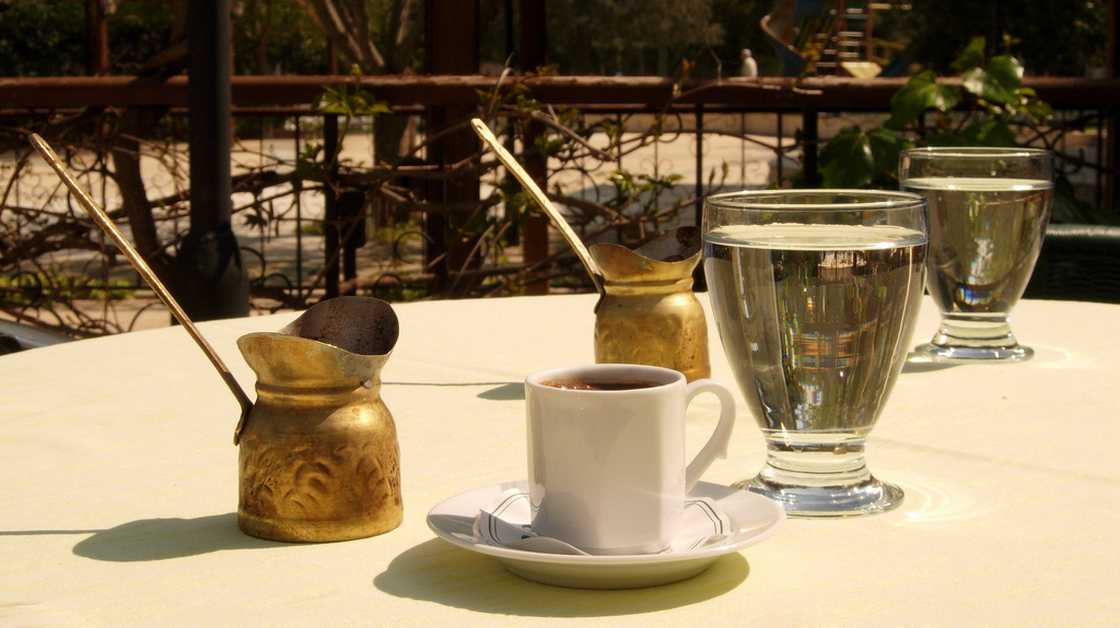
Cultural Diplomacy Through Coffee, Culture & Art
Keynote Speaker
Gizem Şalcıgil White
Guest Artists
Hasan Kale & Atilla Can
Sunday, May 29, 2022
12:00pm-1:30pm ET | 11:00am-12:30pm CT
9:00am-10:30am PT | 19:00-20:30 TR
Zoom Registration:
us02web.zoom.us/webinar/register/WN_0R67RxL4S5-7feMEc_EksA
About the Keynote Speaker
Gizem Şalcıgil White has been a goodwill ambassador for Turkish coffee culture since 2009 and is the founder of the award-winning non-profit Turkish Coffee Truck initiative. She has been working voluntarily to promote Turkish coffee culture in the U.S. and abroad for the past 10 years. With the support from a dedicated volunteer team from American Turkish Association of DC (ATA-DC), the Turkish Coffee Truck initiative has been bridging cultures through coffee conversations since 2012. Through this cultural diplomacy initiative, more than 20,000 people in the U.S. and Europe was exposed to Turkish coffee for the first time. Gizem’s one-of-a-kind cultural diplomacy project made the headlines of major international publications including The Washington Post, Washingtonian, PRI/BBC and her fans started calling her the “Turkish Coffee Lady”. In 2015, she was honored as the one of the “Top Young Outstanding persons of Turkey” by JCI. Turk of America magazine also awarded her as one of “40 Under 40 – The Most Influential Turkish American” in March 2016. In 2017, she started the first and only authentic Turkish coffee chain in the U.S. with the support of her partners and her dedicated team.
About the Documentary
In December 2013, Turkish coffee was admitted to UNESCO’s World Heritage list as a “cultural inheritance that has to be protected.” Initiated by the Turkish Coffee Lady Foundation, the world’s first coffee diplomacy platform, the documentary is composed of special shootings featuring “dibek coffee” in Mardin, “mirra coffee” in Şanlıurfa, “menengiç coffee” in Gaziantep, “saffron coffee” in Karabük, “coffee brewed on ash” in Nevşehir, “coffee brewed on sand” in Ankara, “mastic coffee” in Izmir and “traditional coffee” in Istanbul.
About the Guest Artists
Hasan Kale is a world-renowned micro artist master who can turn tiny objects into minuscule paintings. Known as “Turkey’s Microangelo”, Kale’s exquisitely detailed paintings include pumpkin seeds, coffee beans, rice grains, chickpeas and tiny discarded items such as matchsticks to bottle caps. One of İstanbul’s most famous and talented artists, Hasan Kale’s showcasing some tiny masterpieces and unique designs will be shown from pre-recorded videos during the webinar.
Atilla Can graduated from Atatürk University. He learned marbling art (Ebru) from Ali Çalışır at the Zal Mahmut Pasha Complex. He also learned marbling from Vedat Vaytaş. After five years, Can obtained his professional license in marbling. He organized and served as a president to establish the worldwide “Ebru Day.” He has participated in numerous group exhibitions and festivals in Turkey and abroad. He has received many awards for his work. Can continues his work in Istanbul.


